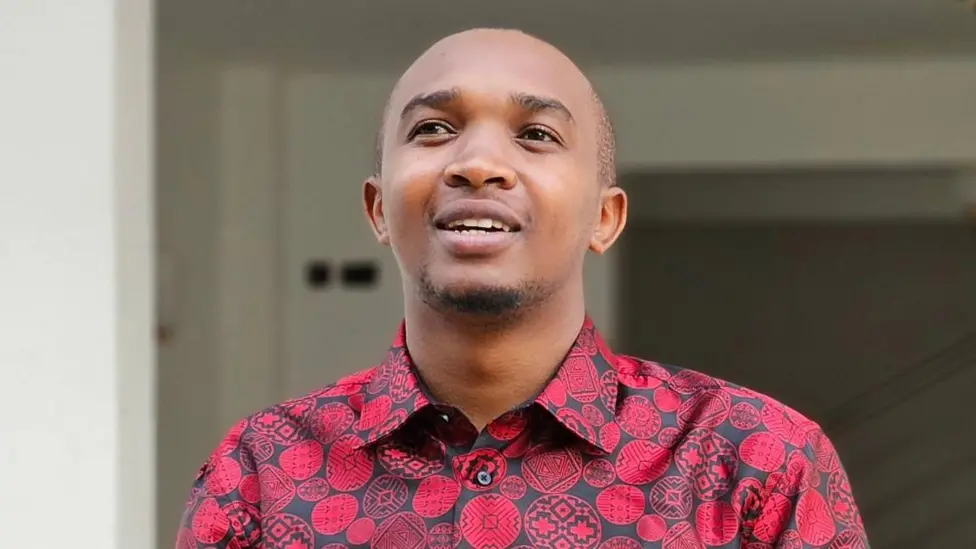David Morara Kebaso's lawyers reject cyber-harassment charges against him
A Kenyan lawyer and activist has appeared in court in connection with alleged cyber-harassment a day after he was dramatically arrested in the capital, Nairobi, sparking public anger.
David Morara Kebaso has attracted a huge following on social media for his posts about alleged corruption and the misuse of public funds through fictitious or stalled projects.
The 28-year-old was arrested Monday evening by masked police who confiscated his phones and laptop before driving him away, local media reported.
He is accused by the state prosecutor of tarnishing the reputation of businessman, David Langat, in an X post that also mentioned President William Ruto.
His arrest comes nearly three months after youth-led anti-government demonstrations against controversial proposed tax hikes, which turned deadly.
More than 50 people were killed and dozens others were reported missing in June's protests that forced President Ruto to abandon the tax legislation and sack almost his entire cabinet.
Mr Kebaso, who describes himself on social media as "bold and fearless", has in recent months rattled government officials through his nationwide campaign of documenting stalled government projects and demanding accountability for wasted public funds.
He has been doing so by recording short videos and sharing them on social media, attracting sharp reactions.
His online activism has attracted more than 200,000 followers on his X account, with some fundraising to support his activities.
He was picked up by police from his office in the Kahawa Sukari area, on the outskirts of Nairobi, and spent a night in a cell before appearing in court on Tuesday.
Several activists and lawyers who rushed to the Nairobi regional police headquarters to see him said they were denied access to Mr Kebaso and then tear-gassed.
The hashtag #FreeMoraraKebaso has been trending on social media since last night as Kenyans online called for his release.
The state prosecutor laid a cyber-harassment charge against Mr Kebaso for allegedly posting false information on social media about Mr Langat.
However, the activist failed to plead to the charge after his lawyers dismissed it as defective.
His lawyers said the charges constituted a civil claim for compensation, since the complainant alleged defamation and not cyber-harassment.
But the state prosecution opposed the argument, saying the charge sheet was in order.
In its ruling, the court released Mr Kebaso on a cash bail pending a determination on the legality of the charge sheet.
There were dozens of protesters outside the court and a heavy police presence noted in the city as activists threatened to mobilise major protests demanding for his release.
Amnesty International has termed Mr Kebaso's arrest as a "blatant misuse of the criminal justice system", external and called for his unconditional release.
The father of two has in the past complained of receiving threats and been followed by vehicles with unidentified licence plates.
"If I worry too much, I will not be able to continue my work," he remarked.
"What I am doing is extremely risky. I have experienced incidents where my phone was tracked and vehicles with untraceable number plates were seen near my home." Wycliffe Muia, BBC






